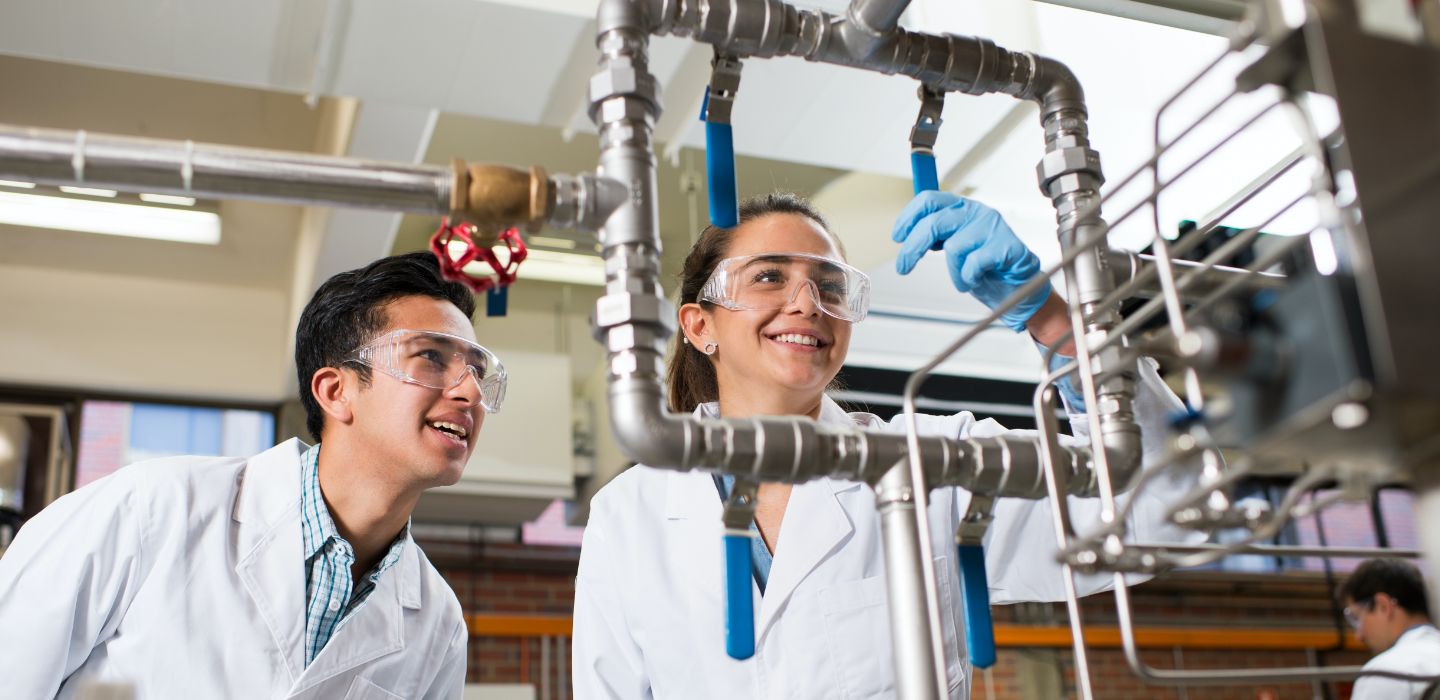CRICOS Code 087941B
Students must complete the following eight core units:

Stage 1: 2-3 Trimesters (8-12 months)
Stage 2: 2-3 Trimesters (8-12 months)
Stage 1: February, June, October
Stage 2: February, June, October*
*This excludes the majors ‘Metallurgical Engineering’ and ‘Civil & Construction Engineering’.
Curtin Bentley
Additional costs may apply depending on your course and stream
View International Student Fees
Additional costs may apply depending on your course and stream
Engineers can find themselves working in many different disciplines and environments, from overseeing maintenance operations to designing and building engineered solutions, the range of career options is vast, varied and challenging.
The Diploma of Engineering offers students an industry-connected experience, uniquely placed to provide solutions to the challenges faced by the global community. Curtin College will provide you with the skills and knowledge to enable you to commence the academic studies you will need for your career in engineering.
Available Majors include:
Students must complete the following eight core units:
Depending on unit availability
Students must complete the following core units.
Please contact your Program Manager for further information Engineering@curtincollege.edu.au
Stage 2 Units – 25 Credit Points Each (unless stated)
This unit has been developed as an introduction to programming for science and particularly data science students. It responds to an increasing focus on data analytics and computational science in research and industry. Coding is also one of the valuable tools and skills covered as a valuable skill to apply and extend in your later studies and careers.
In this unit, as a developing professional, you will develop the knowledge and skills necessary to analyse successful and unsuccessful engineering projects throughout history to make connections between the projects and non-technical aspects, namely historical, ethical, health and safety, social environment, risk management and environmental determinants.
This unit is designed for students who want to pursue a professional degree in engineering. This unit covers the engineering design and tendering process, used by engineers from all disciplines to determine a solution to a problem. In this unit as a developing professional you will develop the knowledge and skills necessary to define the problem, imagine innovative conceptual designs, write and respond to a tender document, prototype possible design solutions, refine several designs to a single final design, and determine specifications of the final design.
This unit builds on students’ knowledge of functions and calculus, further extending to a range of techniques used in solving problems arising in engineering and related fields. Students will extend their differentiation techniques to optimisation problems and the approximation of functions. This unit will cover a range of integration techniques to optimisation problems and the approximation of functions. Students will apply integration techniques to find volume, length and surface area and will be introduces to the concept of complex numbers, together with their applications and use in solutions to polynomial equations. This unit is designed for those students who have passed WACE Mathematics Methods or equivalent.
Newton’s Laws; Forces as vectors. equilibrium of concurrent and non-concurrent forces; Couples and distributed forces. Equilibrium of statistically equivalent systems; Free bodies and free- body diagrams; Analysis of simple frameworks, trusses; Internal actions within a beam using free-body diagrams; Variations in resisting forces along a beam; Relationship between load and response; Axial stress and strain, elasticity; Axial deformation; Shear stress and strain, shear modulus; Deformations in shear; Thermal effects and resulting stress and strain; Principles of compatibility; Concept of stiffness and properties of area and material that influence response; Superposition; Kinematic equations; Linear motion; Projectile motion. Curvilinear and relative motion; Plane kinetics, Newton’s second law in n-t coordinates; Linear momentum; Elastic and inelastic collisions. Work, forces and power; Potential and kinetic energy; Elastic energy; Energy conservation; Plane kinematics and kinetics of rigid bodies; Rotation about a fixed axis. Hydrostatic pressure; Static fluid forces on simple structures; Analysis of fluid; Momentum flux of all fluid flows. Bernoulli’s equation.
Fundamentals of DC Circuits; Fundamentals of AC Circuits; Electro-mechanics and Energy Conversion; Electronics; Instrumentations and Control.
This unit will consider the problems arising from engineering-related fields. Students will learn the necessary skills to model and solve such problems through the introduction of mathematical techniques of linear algebra, data analysis and statistical inference. This unit will cover vectors, lines and planes and their extension into n-dimension space. The unit also covers matrices and their use for solving systems of linear equations through a study of a number of different types and solution methods. Students will be introduced to the world of statistics by looking at the concepts of descriptive statistics and inferential statistics.
This unit introduces the whole-of-life cycle of resources and the underlying flow of materials, established and emerging, from their origins on to extraction, processing, selecting, applying and disposal. The unit approaches engineering decision making regarding resources as an ethical and technical systems-thinking process. A key ability that students should gain on completing this unit is to select potential materials for a given application, accounting for the suitability of their properties as well as their impact on society and the environment. Material and energy balances are introduced to quantify the resources consumed in the chemical, metallurgical, physical and biological processes associated with transforming resources and energy into end products. The origin and extraction, physical and chemical processing, sustainable use and disposal of resources are illustrated with case studies of different resources encountered across engineering disciplines, for example, metals and alloys, polymers, glasses, ceramics and composites. Foundational experiments spanning chemical processes, material properties and metallurgy support the syllabus.